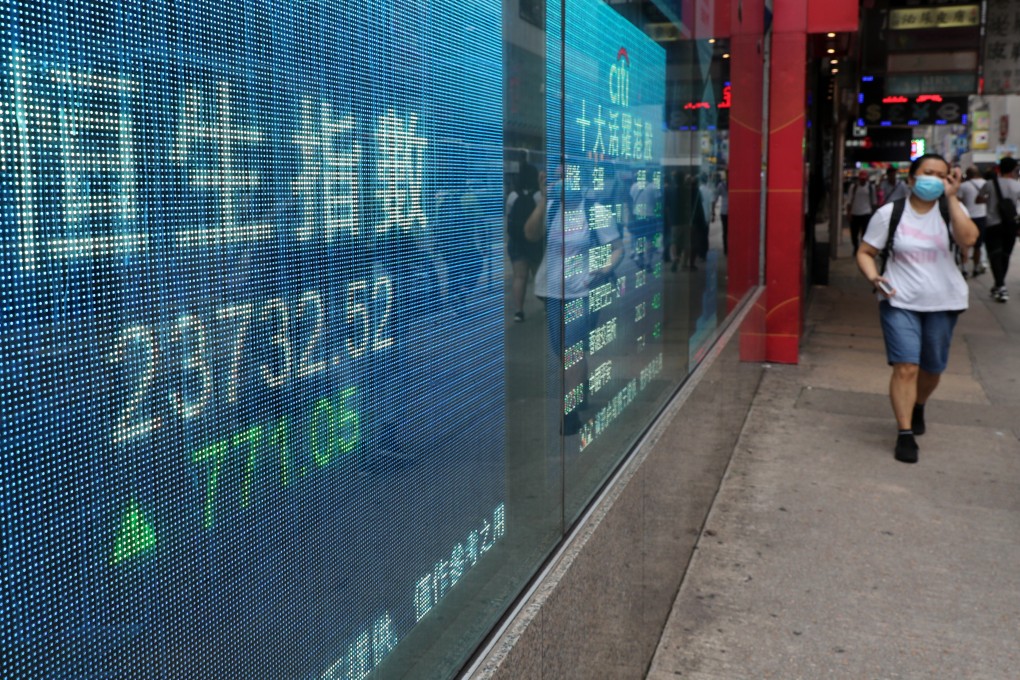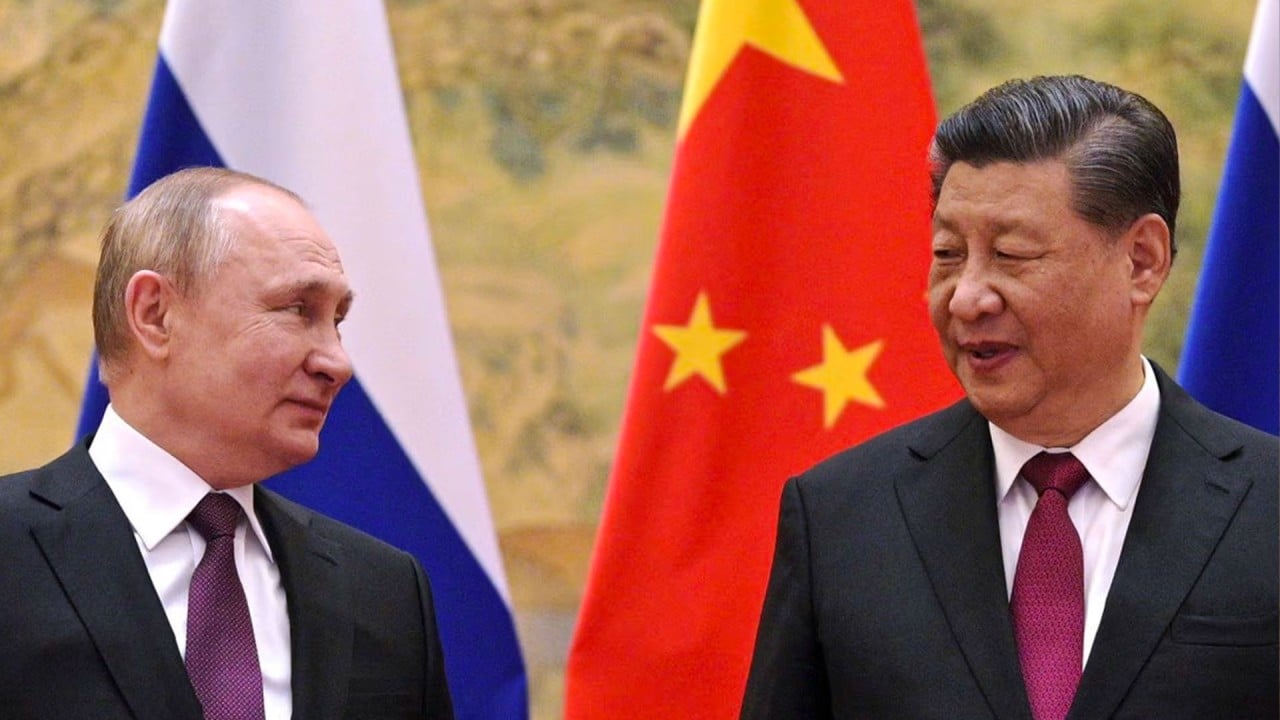Advertisement
Hong Kong stocks reach 5-week high as Alibaba, JD.com rally on China’s audit proposal to contain US delisting risk
- Stocks advanced on the back of China’s decision to drop a key audit barrier involving US-listed Chinese stocks, tempering delisting risk
- CSPC Pharma and CanSino Biologics surged on news they will start clinical trials for Covid-19 vaccine based on mRNA technology
Reading Time:2 minutes
Why you can trust SCMP
4

Hong Kong stocks rose to a five-week high on optimism China’s proposal to remove a key audit barrier on US-listed Chinese companies will ease delisting pressure and keep a major global funding avenue intact.
The Hang Seng Index climbed 2.1 per cent to 22,502.31 at the close of Monday trading, the highest level since March 1. The Tech Index surged 5.4 per cent, mirroring a 4.7 per cent rally in the Nasdaq Golden Dragon Index in New York on Friday. Financial markets in mainland China are shut through Tuesday for public holidays.
Alibaba Group Holding, the owner of this newspaper, advanced 3.7 per cent to HK$113.70. Meituan jumped 7.4 per cent to HK$167 and Tencent Holdings added 3 per cent to HK$390. JD.com and NetEase each gained by at least 6.6 per cent.
In a revised draft published on Saturday, the China Securities Regulatory Commission scrapped a requirement that only Chinese regulators can conduct on-site audit inspections of Chinese companies listed overseas. China currently denies access to US watchdog PCAOB, citing state secrets among others.
“This is a major concession,” said Francis Lun, chief executive of Geo Securities. “The CSRC has given in to the [US] demands. Chinese tech stocks have hit rock bottom last month and there’s no other place but to go back up.”
Hong Kong’s broader stock market has lost US$1.4 trillion in market value over the past nine months, according to Bloomberg data. The benchmark Hang Seng Index logged three straight quarters of decline, marred by Russia-Ukraine geopolitical risk and delisting woes, before Beijing’s verbal assurance in mid-March helped put a floor on stock prices.
Advertisement
